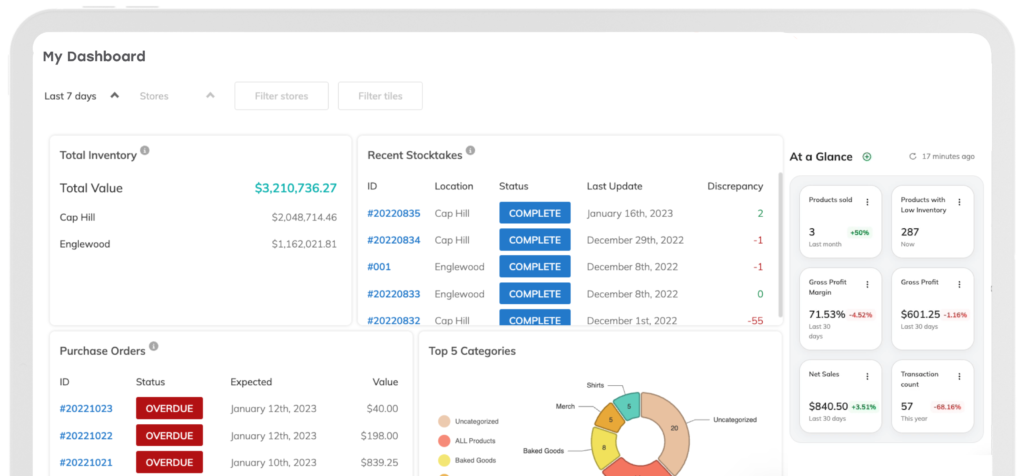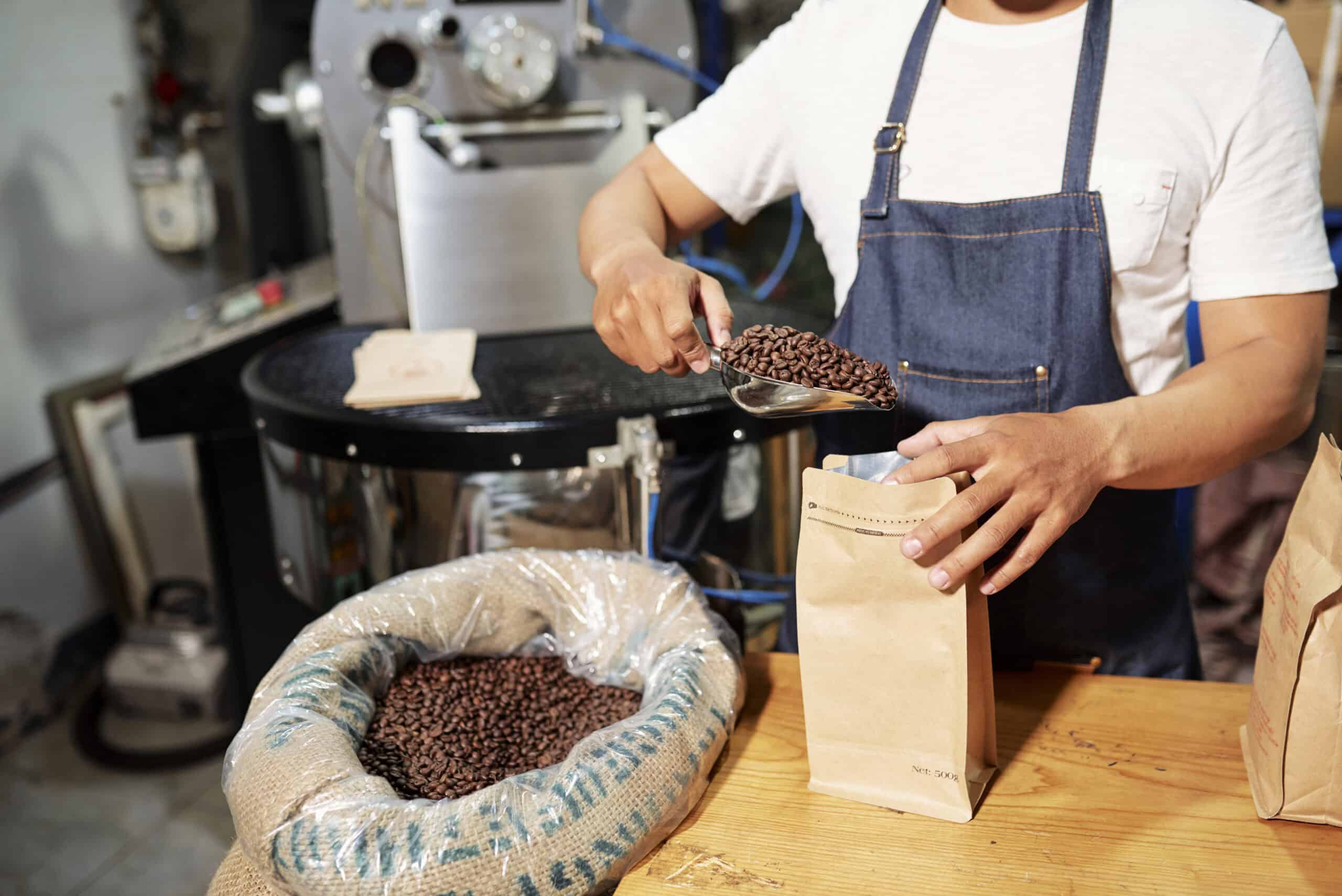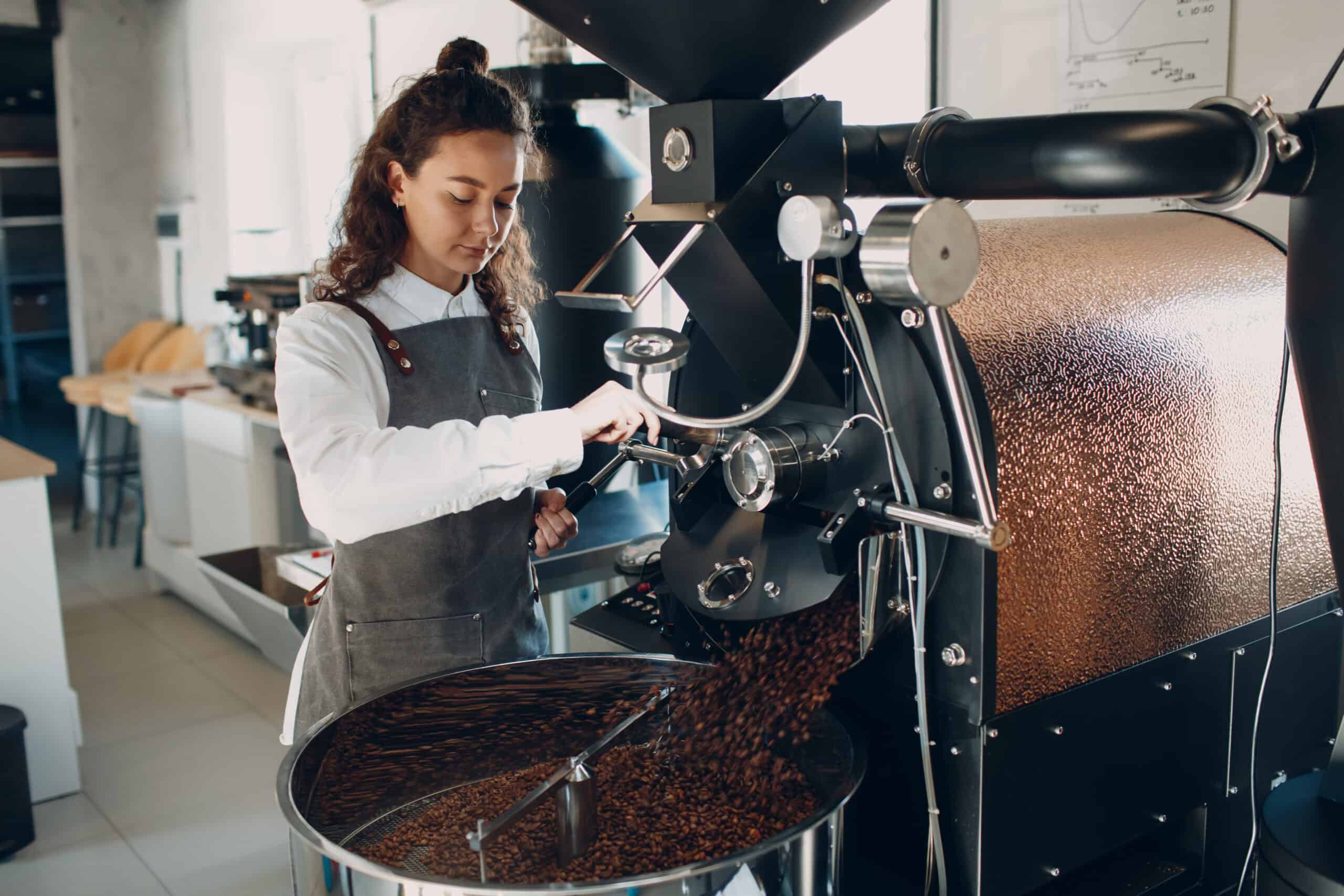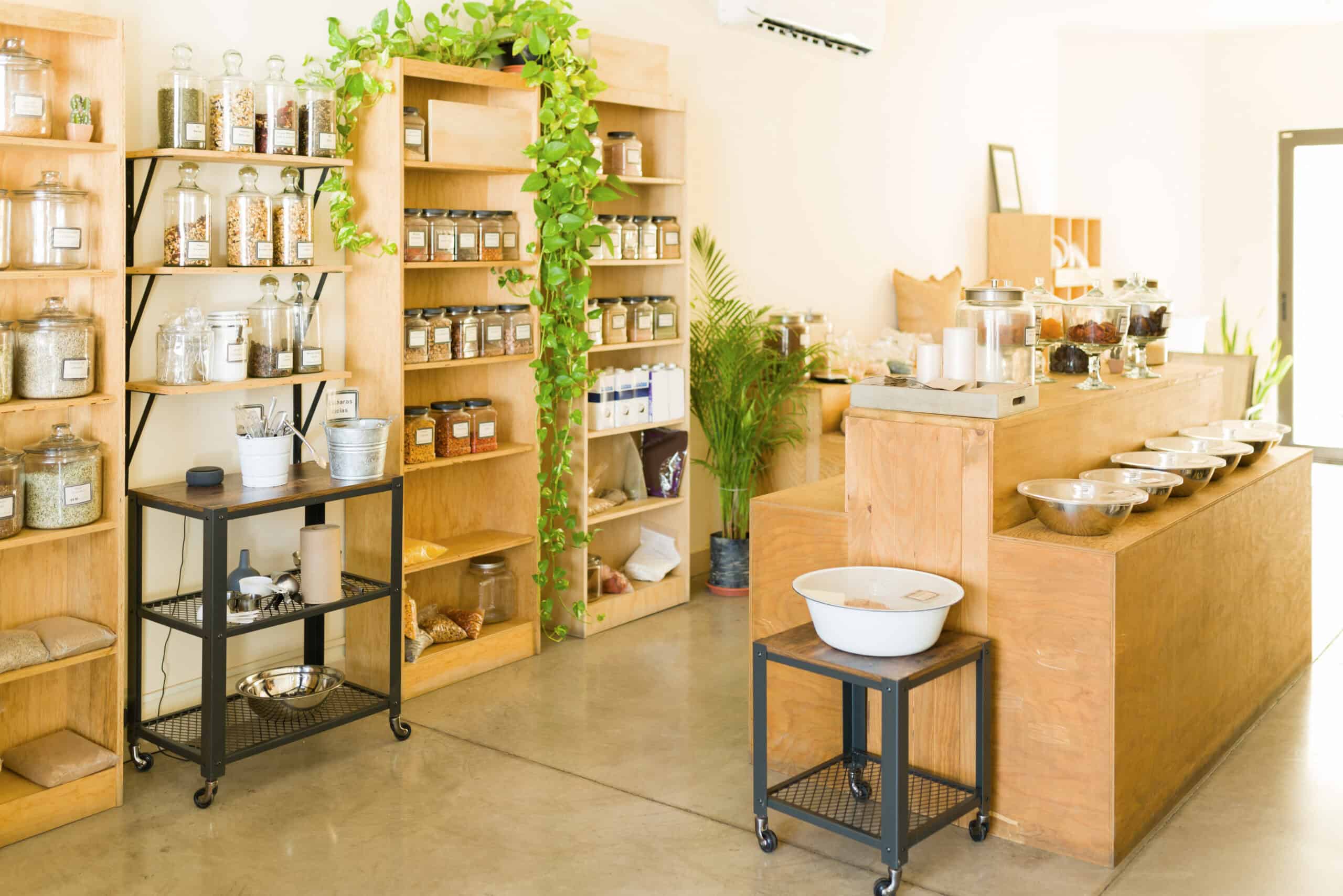
Launch More Income Streams With These 8 Coffee Shop Expansion Ideas
Your coffee shop has the potential to be so much more than where caffeine lovers start their busy workdays. Many coffee shops also double as a bakery, entertainment space, or event service — or they simply expand into a new location in another neighborhood. Are these concepts right for your business? Keep reading for coffee shop expansion ideas that have brought success to plenty of shops just like yours.
1. Open More Locations
Opening another coffee shop location makes it possible to tap into new customers and markets. For example, suppose your city cafe regularly attracts suburban customers. Opening a suburban location would almost certainly attract new customers. In that case, it’s time to open a second location outside your home city. And you don’t have to stop at one additional location — if there’s justification for a third and fourth new shop, and so on, go for it.
That said, becoming a multi-location coffee business requires lots of funding. You’ll also need a clear strategy for managing all your locations. Will you hire out for human resources and payroll functions, or will you rent an office and build an in-house team? How much additional staff do you need to hire? How will you get the word out about your new location? It’s understandable if your expertise is more in serving coffee offerings than business proper, so add space in your budget to hire consultants as you expand.

2. Consider Franchising
Dunkin isn’t everywhere because the company’s founder opened each individual location themselves. Instead, this coffee giant offered franchising opportunities, where someone pays your business to operate their own location under your brand. If your coffee shop does the same, you’ll be able to focus on ensuring a consistent, effective product and branding across a large number of locations, while the franchise owners handle daily operations.
Franchising coffee shops is a feasible path forward if you’re confident that aspiring business owners are capable of leveraging your business management approach — and your intellectual property — into success. Coffee shop expansion via franchising is most effective when you directly support these aspiring business owners as they get off the ground.
Launching a franchise requires an intricate growth plan, an operations audit that pinpoints opportunities for process improvement, and clear descriptions of your mission, vision, and company culture. There’s also the need to reach potential franchisees (coffee shop operators) and figure out which ones are the best fit for partnering.
This all takes substantial effort, but if you want to grow your small business, franchising is an incredibly effective way to scale at speed. It’s also a cost-efficient approach to expansion, since franchise fees will cover much of the financial responsibilities that typically come with opening new locations.

3. Launch An E-Commerce Store
E-commerce coffee sales are a growing revenue stream for the specialty coffee industry. In fact, e-commerce is such a strong focus area that there was a whole talk about it at the 2023 Coffee Retail Summit. In this day and age, multichannel selling — building a web store that ships all of the same products you offer in person to customers’ doorsteps — is all but a necessity for coffee shop growth and success.
When taking your specialty coffee products online, you’ll face challenges like secure payments, data privacy, order fulfillment, and the fact that, on the internet, you have far more competition than just your neighbors. Some of these challenges are easy to address: cybersecurity and fulfillment solutions are easy to come by.
As for the competition, standing out requires a well-designed and fast website, excellent search engine optimization, and reasonable prices. Filling in the gaps that a competitive analysis uncovers is also a great strategy. So too is product-led marketing, in which you primarily educate your customers on your coffee products’ unique features as compared to other brands.
Easy Expand Your Coffee Shop To E-Commerce With Thrive Inventory
Thrive Inventory reduces barriers to launching an e-commerce sales channel by quickly syncing inventory and getting you up and running in no time. Sync with your point of sale system and your e-commerce store so when you sell a product in-store the stock count is reflected online store.
4. Start A Subscription Business
Coffee aficionados might love your gourmet, high-quality coffee beans but be too busy to regularly swing by your location. Expanding your in-store sales into an online subscription coffee service enables these eager coffee drinkers to get your café quality coffee beans right at home. This increased convenience often leads to more sales and thus significant growth.
Subscribers make automatic payments to get coffee products without taking any extra steps on a recurring basis. You thus need a rock-solid system for fulfilling orders as they arrive, such as through inventory management software and third-party logistics. And if you’re facing a competitive coffee subscription market, consider a curated subscription in which your customers get new and exciting coffee beans with each delivery.

The Newsletter For Small Businesses
Weekly expert insights, industry trends, and inspiring stories designed to help you run your business with confidence.
5. Sell Your Coffee Wholesale
Have you noticed small coffee shops’ whole beans being sold at your favorite local retail shop? That’s because these coffee brands have taken the smart step of launching a wholesale program, selling to small businesses and even other coffee shops that don’t roast their beans in-house. In other words, these coffee shops are now selling their roasted coffee to other retailers, not just everyday consumers.
Grow Your Wholesale Coffee Business With Thrive Inventory
Thrive Inventory reduces barriers to launching an e-commerce sales channel by quickly syncing inventory and getting you up and running in no time. Sync with your point of sale system and your e-commerce store so when you sell a product in-store the stock count is reflected online store.
6. Partner With Another Business
When you see coffee chains with tiny locations inside a bookstore or Target, you’re seeing a coffee shop partnership in action. These partnerships don’t have to be corporate or national — local partnerships are especially effective for driving coffee sales. When you open a cafe within a neighborhood-owned kitchen store, aspiring coffee cocktail masterminds might discover your coffee brand for the first time. Or, some coffee brands are known to partner with local breweries or cocktail bars to offer a different kind of morning service.
The initial challenge when your coffee business seeks a partner is finding one in the first place. Your local small business association is a great place to network with other businesses. You’re also welcome to walk right in and introduce yourself to potential partners. You never know how far a quick elevator pitch will go with the right retailer.
Once you do find the right partner, problems such as differing communication styles, management approaches, and visions for the partnership often emerge. Effective communication is one way to solve all these problems, as is intentionally building trust.

7. Develop A Sustainable Coffee Line
The average consumer is willing to pay up to 10% more than a product’s usual price to buy a sustainably produced, ethically sourced version. The coffee industry has long reckoned with concerns about its environmental and human impact. Developing your own fair trade coffee line is a powerful way to seize the moment. You’ll appeal to sustainability-minded consumers while feeling great about your supply chain lessening harm.
As you roll out this coffee line, you’ll need to offer proof that your products are indeed sustainable. Add dedicated web pages to your website with detailed information about your sourcing and processes. Additional web pages about sustainable practices in coffee shops also educate your customers on an issue they care about deeply. The result is a more meaningful connection with your customers, who will be reminded that, unlike some coffee shops, yours prioritizes the well-being of the planet and its people.

8. Broaden Your Service Offerings
Add a retail shop
When you can’t find a business to partner with, it’s time to create your own. Coffee shop diversification strategies, like adding a board game component or an art gallery to your location, often drives specialty coffee business growth. You’ll reach consumers interested in, respectively, board games and art who might not have previously been drawn to your coffee. Offering unique shopping and activity experiences sets your business apart and expands your potential customer base.
The main obstacle to success with retail coffee expansion is that you’re effectively managing two businesses now. You need to oversee your usual coffee production and sales and, for example, keep the board games stocked, organized, and available for in-store play. The good news is that generating another in-house revenue stream typically yields enough money to hire new employees to cover these needs.
Expand into the evening with alcoholic drinks
A coffee shop that stays open into the night is somewhat of a unicorn, so adding an evening component with alcoholic drinks after sundown is a promising path forward for the average coffee business. When you pair your great coffee with equally enticing alcoholic drinks or alternative beverages like CBD mocktails, you get in on the multi-billion-dollar bar sales per year in the U.S. For this business model, your coffee shop needs a liquor license.

Create an entertainment space
The open mic is a mainstay for many coffee shops, and it’s a starting point for another revenue stream to consider when expanding your foothold in the specialty coffee market. Keep the open mics going, but build from them with regular performances from local artists or artists who tour nationally.
Local artists are great daytime performance choices for driving product interactions with your coffee. Touring artists typically perform at night, making them a better fit if you’re growing your space into an evening establishment with drinks. The local route is less labor-intensive in that contacting and booking folks in your area primarily requires neighborhood connections.
Offer event services
A well-catered wedding has self-serve coffee for all the guests to keep up a night’s worth of dancing. Offering mobile coffee cart services for weddings and other events opens new revenue possibilities with customers who are often working with big budgets.
For success in event services, market your offerings to local event production companies, event management firms, wedding venues, and wedding planners. Stock up on wheeled carts with enough surface space for your roasting setup. Buy extra roasters so that your coffee shop has the capacity to serve great coffee to your usual in-store visitors while catering events.
Expand your product line
Beans and drinks are only the start when it comes to coffee-based products. Expand into chocolates, baked goods, and ice cream infused with your coffee, and you’ll tap into a new customer base of avid foodies. This approach is also a great way to repurpose and sell coffee that hasn’t quite flown off your shelves in its usual bagged bean format.
Feeling really ambitious? Coffee is increasingly taking on a second life as a beauty product. Partner with a beauty brand near you to launch a product line infused with coffee that drives revenue for both you and the beauty company.
When marketing your coffee beauty line, focus on customer education since some people may not yet be aware of coffee’s beauty uses. Leverage customer education when selling other coffee-infused goods too: Why does instant coffee or espresso powder make chocolate taste so much bolder? How do the coffee beans you use impact your ice creams’ various flavors? Telling a story and speaking to consumers’ interests often builds connections that drive sales.

Give coffee tours and tastings
It’s one thing to offer a memorable coffee shop experience. It’s another thing entirely to show customers how you make that experience happen — as in, offering tours of your off-site coffee production facilities.
Of course, if you roast your green coffee beans right at your barista bar, there’s not much of a tour to give, but that doesn’t have to remain the case. Finding an off-site location to roast your coffee frees up space at your shop, enables more efficient roasting in greater quantities, and opens the door to roastery tours. Charge admission for every visit to layer a new revenue stream on top of facilities you’re already paying for and using. Make the experience even more memorable and offer coffee tastings, so attendees can try all of your unique roast blends.
From Whole Beans To The Whole World
There’s truly nothing your coffee shop can’t do. From launching a line of foods and beauty goods infused with coffee to operating after dark, infinite growth possibilities are within reach. Keep at it, and your coffee shop might establish a presence well beyond its backyard. And if you do it right, your business could become one of the next big coffee chains.
The Only Inventory System That Actually Helps You Run A Healthy Business
Thousands of customers all over the world use Thrive Inventory to run a healthy business.
Thrive Inventory gives you control over all your inventory, sales channels, and metrics, allowing you to make the right decisions at the right time.
Keep Reading

The Newsletter For Small Businesses
Weekly expert insights, industry trends, and inspiring stories designed to help you run your business with confidence.
Try Thrive Inventory For Free
Add Thrive Inventory to your business and maximize your potential. With powerful and easy-to-use products, it’s time to take control of
your business and see what you can do with Thrive.




